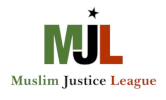The following resources have been compiled by MJL’s Health Justice Team — a working group of health care and health policy professionals — to provide background on CVE, its impacts on the health sector where it has operated in the UK under the name PREVENT, and its likely impacts in the United States.
Why Should Health Professionals Be Aware of the CVE Campaign?
In Massachusetts, a stated priority of federal prosecutors in deploying the CVE campaign has been “Enhanced Communication among Law Enforcement /Mental Health/Social Service Agencies.” Specifically, the USAO-MA’s CVE Framework states, “In coordination with others, existing methods of communications among law enforcement (local, state and federal), mental health and social service agencies will be assessed so that methods can be enhanced.” Law enforcement agencies, including federal prosecutors and the FBI, have begun outreaching to social services providers, including mental health professionals, to recruit participation in CVE programs. The U.S. Attorney’s Office for Massachusetts also routed its CVE grant through the Massachusetts Executive Office of Health and Human Services (EOHHS), and commented to EOHHS staff that “EOHHS’s engagement is key so that this can be framed as a public health issue.”
Critical Perspectives from Health Professionals on CVE/PREVENT
Dr. Adrian James. I’m A Doctor, Not a Counterterrorism Operative. Let Me Do My Job.
Dr. Alice LoCicero and Dr. Wes Boyd. The Dangers of Countering Violent Extremism (CVE) Programs.
Dr. Alice LoCicero. Psychologists: Refuse to Participate in the CVE Campaign.
Dr. John Middleton. Preventing Violent Extremism: The Role of Doctors.
Critical Positions by Health Professional Associations on CVE/PREVENT
Royal College of Psychiatrists London. Position Statement PS04/16, Counterterrorism and Psychiatry.
Patient Confidentiality and Other Legal and Ethical Requirements
Jenna McLaughlin. Pregnant, On Medicaid, and Being Watched.
Kelly Morgan. Pathologizing “Radicalization” and the Erosion of Patient Privacy Rights.
Problems with Reports Cited to Advance CVE as well as with CVE’s Implicit Premises
CAGE. The “Science” of Pre-Crime: The Secret Radicalisation Study Underpinning PREVENT.
(Coalition Statement): Anti-radicalisation Strategy Lacks Evidence Base in Science.
Arun Kundnani. Radicalisation: The Journey of a Concept.
Impacts of CVE/PREVENT on Health Services in the U.K. and U.S.
David Goldberg, Sushrut Jadhav, and Tarek Younis. Prevent: What is Pre-criminal Space?
Dr. Charlotte Health-Kelly and Dr. Erzsébet Strausz. Counter-terrorism in the NHS.
Karma Nabulsi. Don’t Go to the Doctor.
Exploring Counter-Terrorism Policies in the NHS
“Pre-emptive” Prosecutions of Persons with Mental Illness / Developmental Disabilities
Proponents of CVE — a campaign driven by federal law enforcement agencies — sometimes claim that CVE will provide “off-ramps” from prosecution for troubled youth. This may be an appealing argument for parents worried about children’s entanglement in the criminal justice system and for helping professionals such as doctors and social workers. However, in order to evaluate the claim that law enforcement agencies are promoting a program that would “off-ramp” many youth from terrorism-related prosecutions, it is wise to learn about existing prosecutorial practices and consider whether the resources and prosecutorial discretion that law enforcement agencies already possess are being used in ways that are consistent with limiting terrorism-related prosecutions. The following resources provide useful background about current prosecutorial practices.
Trevor Aaronson. The Terror Factory (interview with the author in Mother Jones)
Beau Hodai. Arizona’s Manufactured Terrorism Threat.
Murtaza Hussein. 18-Year Old Arrested on Terrorism Charges is Mentally “Like a Child”
What’s the “Alternative to CVE” in the Health Sector?
Resources on Dignified, Equitable Health Care Access.
World Health Organization, Human Rights and Health.
How Can Health Professionals Respond?
We encourage health professionals to speak with their colleagues, employers and professional associations and urge adoption of clear positions against participation in CVE. MJL’s Health Justice Team is happy to provide support — Reach out to us!
If you are ever pressured by a law enforcement agent — or anyone else — to breach confidentiality norms, you can seek legal assistance to understand your rights and obligations. In Massachusetts, you may want to contact:
- National Lawyers Guild Lawyer Referral Service
- ACLU of Massachusetts
- Boston Bar Association
- Massachusetts Bar Association
Outside Massachusetts, we encourage you to seek out your National Lawyers Guild state chapter or national office, your ACLU state chapter, and/or any state or municipal bar association referral services covering your area.
